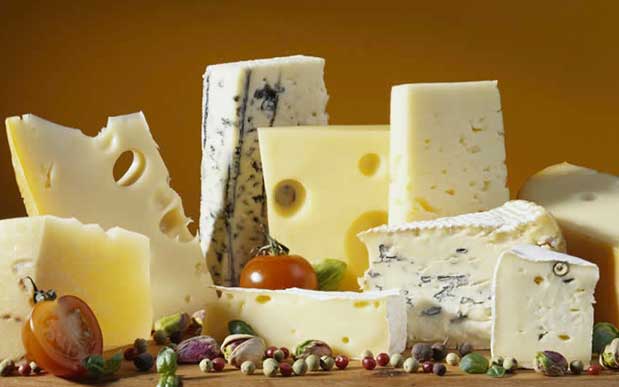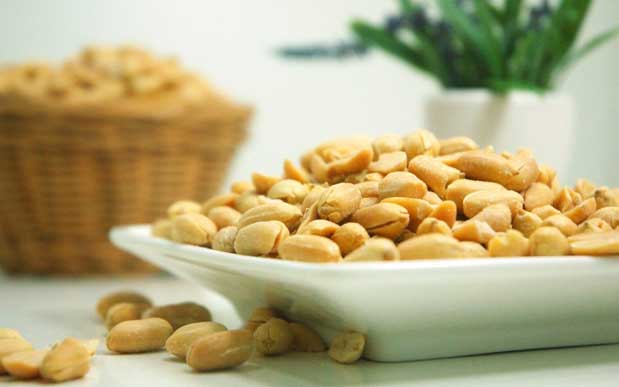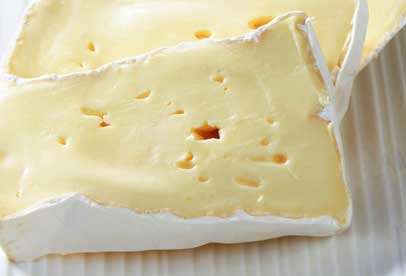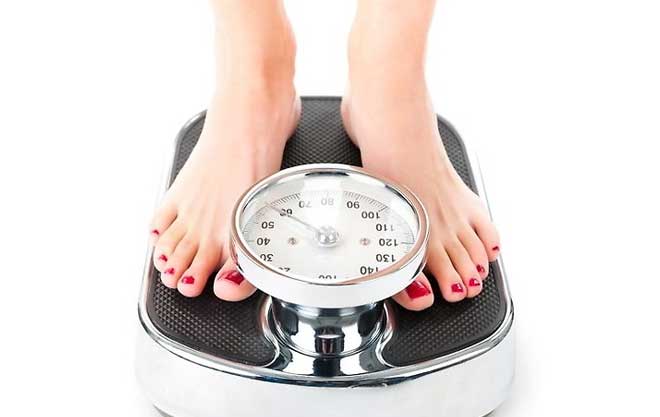
Eating cheese does not raise cholesterol, study finds
A study published in the journal Nutrition and Diabetes concludes that people who eat a lot of cheese don′t necessarily have higher cholesterol levels than those who don′t.
Scientists at University College Dublin in Ireland found no link between eating cheese and increased body fat or higher LDL (low-density lipoprotein) cholesterol, sometimes known as "bad" cholesterol.
Excess LDL cholesterol can cause cholesterol deposits to form on artery walls, leading to atherosclerosis (hardening and shrinking of the arteries), the main risk factor for strokes and heart attacks. Some 10,000 people in Ireland die from these diseases each year.
The researchers studied the impact of eating dairy products (on average 291g per day), such as milk, cheese, yogurt, cream and butter, on markers for body fatness and health in 1,500 Irish people aged between 18 and 90 years old. The study revealed some positive effects of dairy intake.
In fact, higher dairy intake was associated with lower body mass index (BMI), lower percentage of body fat, lower waist size and lower blood pressure.
Participants who ate a lot of cheese were not found to have higher LDL cholesterol levels than those who ate small amounts or no cheese at all.
When studying participants′ diets, the researchers found that people who regularly consumed low-fat milk and yogurt tended to have higher intakes of carbohydrates. More surprisingly, they were also found to have higher LDL cholesterol levels.
The study suggests that dairy products, particularly milk and yogurt, can be consumed as part of a healthy diet to help maintain weight and contribute to keeping blood pressure and blood glucose levels in check.
The saturated fats contained in dairy products, especially in cheese, and the nutrients they contain should be considered in the wider context of a person′s diet, the scientists conclude. "We have to consider not just the nutrients themselves but also the matrix in which we are eating them in and what the overall dietary pattern is, so not just about the food then, but the pattern of other foods we eat with them as well," said lead author Dr Emma Feeney.
Generally, a dietary intake of antioxidants like vitamin E, vitamin C and beta-carotene, found in fruit and vegetables, and omega-3 fatty acids can help limit the buildup of bad cholesterol on artery walls. However, all meat -- even lean meats (offal, chicken, etc.) - are sources of cholesterol, particularly offal.
According to a recent Canadian study, barley and oats could reduce the risk of heart disease linked to bad cholesterol by 7%. These two grains are particularly rich in beta-glucan, a highly viscous soluble fiber found in bran, flour, ground grains or flakes.
Related News

How to prevent peanut allergies in children?

5 DIY masks for your various hair concerns

5 Hot Yoga Poses For Rapid Weight Loss

5 Dairy-Free Cheese Options Worth Trying

Popular weight loss strategies

The Beauty Benefits of Exercise

How to Gain Weight in 7 Days to Get Rid of the Skinny You

6 Fantastic Yoga Asanas That Will Help You Fight Skin Problems
Most Read
★Fasting might be good for your healh, research says
★10 questions about laser hair removal
★Face Scrubs and Face Packs
★Tips to Even your Skin Tone Naturally
★The best skin care quickies men with oily skin can get
★Work stress may lead to irregular heart rate
★Top 3 Core Exercises While Pregnant
★10 Weight Loss Tips to Make Things Easier (and Faster)
★Skin tone linked to fruit and vegetable consumption
★Grean tea could help get rid of acne
★5 Tips to Take Care of Your Sensitive Skin
★8 Best Foods to Eat for Weight Loss
★5 Reasons Cheese is Actually Good For Your Health
★Plum goodness for your hair!
★Five-second rule for food dropped on the floor approved by germ scientists
★Outdoor Activities to Lose Weight
★Ways to Use Honey for a Glowing Skin
★15 Best Heart-Healthy Foods
★Eat more fruit and veg for a longer life
★How to Make Elderberry Syrup
★The Best Breakfast Foods for Weight Loss
★6 Fantastic Yoga Asanas That Will Help You Fight Skin Problems
★6 Best Oils for a Naturally Clear and Glowing Skin
★Man has lived with giant neck for 13 years after going to doctors for help
★The Benefits of Yoga Beyond Flexibility
★Surgery addict rushed to hospital after his body REJECTED his new nose
★5 Hot Yoga Poses For Rapid Weight Loss
★15 Powerful Asanas of Yoga to Reduce Belly Fat
★5 DIY masks for your various hair concerns
★Combat the Cold with Fresh Oregano Tea
★How your make-up bag could wreck your health
★Those who consume fruit and vegetables have a 40% lower risk of an incurable lung disease
★How to prevent peanut allergies in children?
★Yoga Heals More than Just Your Body
★A platter full of seafood
★Is there a way to combat greying?
★Is This the Best Diet for Post-Menopausal Women?
★Study finds dramatic weight loss can be achieved WITHOUT counting calories
★Expert reveals the snacks you should eat, according to your body type
★Recycling temple waste along the Ganges with Help Us Green
★7 Must-Eat Fermented Foods for a Healthy Gut
★5 Effective Baba Ramdev Yoga Asanas To Increase Height
★The Beauty Benefits of Exercise
★Why You Need to Start Combining Avocados and Peaches
★Acne sufferers likely to live longer than people with flawless skin
★How to exercise outdoors, when the smogs a killer
★Try these 4 simple yoga asanas to gain weight
★Losing Weight in Hot Weather Made Easy
★Working It Out: The future of work and digital
★Healthy food that tastes good too
